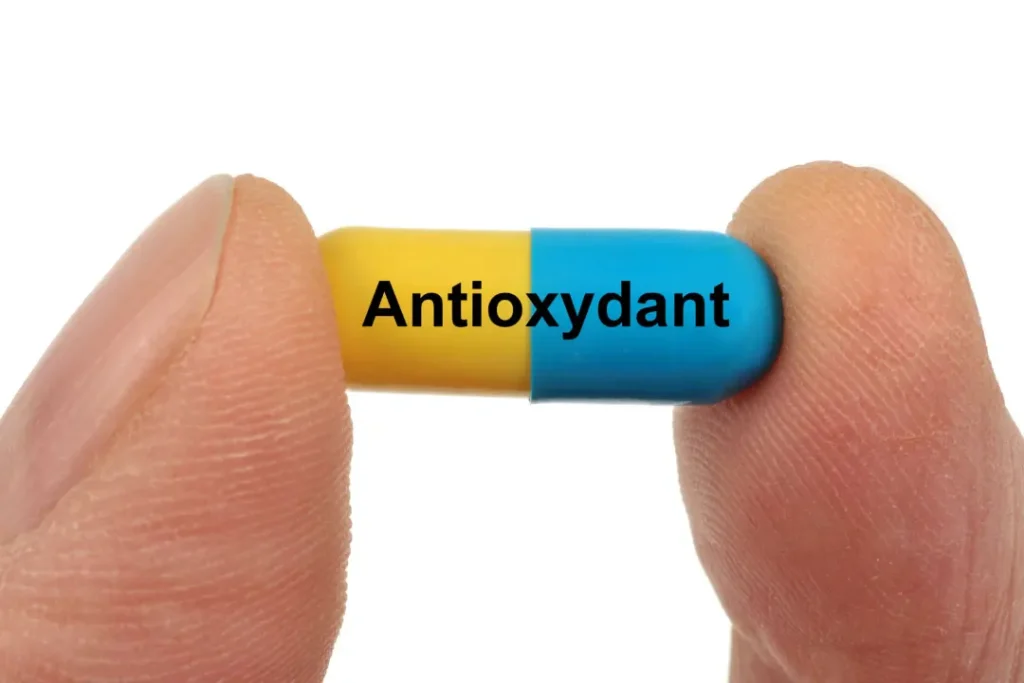Ceramides are known for their potential to hydrate, protect the skin’s barrier, and improve skin texture. We’ll explore five great benefits of the best ceramide serum; then we’ll discover a promising skincare alternative that may deliver all these results and more.
A smooth and radiant complexion at any age can boost confidence and is often a sign of good health. Ceramides are a natural mechanism that helps protect your skin. They are natural lipids (fats) found in the skin that help keep it moisturized and protected; they make up 30% to 40% of your outer skin layer or epidermis.
There are various types of ceramides found in the skin. Natural ceramides are derived from food sources such as rice bran, wheat germ, and soybeans. Synthetic ceramides are manufactured in a laboratory, designed to mimic the structure and function of natural ceramides, and are often used in skin care products to supplement the skin’s natural ceramide levels.
You May Also Like:
Wrinkle-Free, Youthful Skin With Jojoba Oil Moisturizer
Add Chamomile to Your Skin Care Routine to Soothe Redness, Fight Acne, and Reduce Signs of Aging
Ceramide depletion is why your skin may need some help
Ceramide depletion can occur for several reasons, including:
- Age: As you get older, your skin produces fewer ceramides, which can lead to dryness and other skin problems.
- Environmental factors: Exposure to harsh chemicals, pollution, and UV radiation can damage the skin’s natural barrier and reduce the number of ceramides present.
- Medical conditions: Certain medical conditions, such as eczema and psoriasis, can also cause a depletion of ceramides in the skin.
- Genetics: Some people may have a genetic predisposition to lower levels of ceramides in their skin.
Ceramide depletion can lead to various skin problems, including dryness, flakiness, and irritation. Best practices for managing ceramide depletion include protecting your skin from environmental factors, avoiding harsh chemicals, and using skincare products containing ceramides.

5 benefits the best ceramide serum products provide for your skin
The best ceramide serum products typically contain a combination of ceramides and other beneficial ingredients to help nourish, protect, and improve the appearance of your skin.
Benefit #1 Strengthens skin barrier function
The skin barrier is the outermost layer of your skin (stratum corneum) that serves as a shield to protect the skin from harmful substances. A properly functioning skin barrier enables your body to retain water and keep out allergens, irritants, and microbes. When the skin barrier is compromised, it can lead to dryness, redness, and sensitivity. Ceramide serums may help strengthen the skin barrier by replenishing the skin’s natural lipids and promoting cell turnover.
Benefit #2 Soothes skin irritation
Ceramide serums may help soothe skin irritation by restoring the skin barrier and reducing inflammation. Thus, it may be beneficial for alleviating conditions such as eczema, psoriasis, and rosacea.
Benefit #3 Protects against environmental stressors
Ceramide serums can help protect your skin from environmental stressors, such as pollution and UV radiation, which can cause damage to the skin’s barrier function and lead to premature aging.
Benefit #4 Boosts hydration levels & improves skin texture
Ceramide serums can help prevent dryness and irritation by sealing in hydration, resulting in plump and supple skin. Ideally, the best ceramide serum products also contain other hydrating ingredients, such as hyaluronic acid and glycerin, to further enhance the skin’s moisture levels.
Benefit #5 Rejuvenates aging skin and lessens the appearance of lines and wrinkles
Ceramides by themselves are not considered anti-aging. However, because they keep your skin moist and supple, they help minimize the appearance of fine lines and wrinkles. That said, the best ceramide serum ideally includes anti-aging and antioxidant ingredients like vitamins A, C, and E, and hydroxy acids, among others.

An alternative solution to the best ceramide serum
Ceramide serums are an excellent addition to any skincare routine, providing numerous benefits such as improved hydration, strengthened skin barrier function, and reduced signs of aging. However, there are promising alternatives, such as Erno Laszlo’s Soothing Relief Hydration Serum; while the product is not a ceramide serum, it is designed to provide all the benefits of ceramides and much more.
Erno Laszlo, founded in 1927, is a skincare brand well-known for its luxurious and innovative products. Soothing Relief Hydration Serum is formulated using its Barridome Technology™, containing a blend of moisturizing and hydrating ingredients plus additional antioxidant-rich ingredients to protect the skin from environmental damage. According to the brand, “Our Barridome Technology™ has a second-skin effect, keeping the complexion hydrated in the face of environmental stressors.”
The ingredient list is available on their website, and here are some examples:
- Propanediol: A moisturizing and hydrating ingredient that softens and soothes the skin.
- Butylene glycol: A humectant that helps attract and retain skin moisture.
- Squalane: A moisturizing oil that prevents moisture loss and improves skin texture.
- Physalis pubescens fruit juice: An antioxidant-rich ingredient that helps soothe and protect the skin from environmental damage by supporting the skin’s natural moisture barrier.
- Salvia miltiorrhiza root extract: A concentrate derived from the roots of red sage that improves the quality of the skin’s moisture barrier while providing soothing relief.
- Allantoin: A gentle ingredient that provides soothing and calming comfort to the skin.
- Caprylic/capric triglyceride: A moisturizing ingredient that helps to replenish the skin’s natural oils.
GM (North America) Carla Martinez says that Erno Laszlo “places science first (just as their founder did) and does a lot of research before product launches or reformulations.”
As an example, they conducted an 8-week clinical study of 31 participants who used Soothing Relief Hydration Serum and published these results on their website:
Clinical Results:
• 97% reported a reduction in visible signs of irritation and reduced skin discomfort
• 94% reported their skin felt instantly soothed after use
*8-week study of women ages 20-50
Soothing Relief Hydration Serum goes beyond the best ceramide serum in skin care treatment by replenishing vital hydration with the added benefits of antioxidants, skin barrier protection, and calming ingredients.
Your skin is your body’s largest organ and protector – skincare is health care. Skincare doesn’t have to be complicated; it can be as simple as avoiding excessive sun exposure and maintaining a consistent skincare routine that includes a skin-nourishing and skin-protecting serum. Go forward with your research and find the product that helps you get your glow on.

For Further Research:
American Academy of Dermatology – What your skin can tell you about your overall health
Good Housekeeping – Dermatologists Explain Why Ceramides Are So Important for Your Skin’s Health
Medical News Today – Caprylic triglyceride: Uses, benefits, and side effects.
Medical News Today – What is butylene glycol? Uses, benefits, and side effects
Everyday Health – What Are Ceramides? Benefits, Side Effects, Usage, More
Pharmacy Times.com – Ceramides Help Prevent and Treat Dermatological Conditions
PubMed Central – Skin barrier function
Important Note: The information contained in this article is for general informational purposes only, and should not be construed as health or medical advice, nor is it intended to diagnose, prevent, treat, or cure any disease or health condition. Before embarking on any diet, fitness regimen, or program of nutritional supplementation, it is advisable to consult your healthcare professional in order to determine its safety and probable efficacy in terms of your individual state of health.
Regarding Nutritional Supplements Or Other Non-Prescription Health Products: If any nutritional supplements or other non-prescription health products are mentioned in the foregoing article, any claims or statements made about them have not been evaluated by the U.S. Food and Drug Administration, and such nutritional supplements or other health products are not intended to diagnose, treat, cure, or prevent any disease.